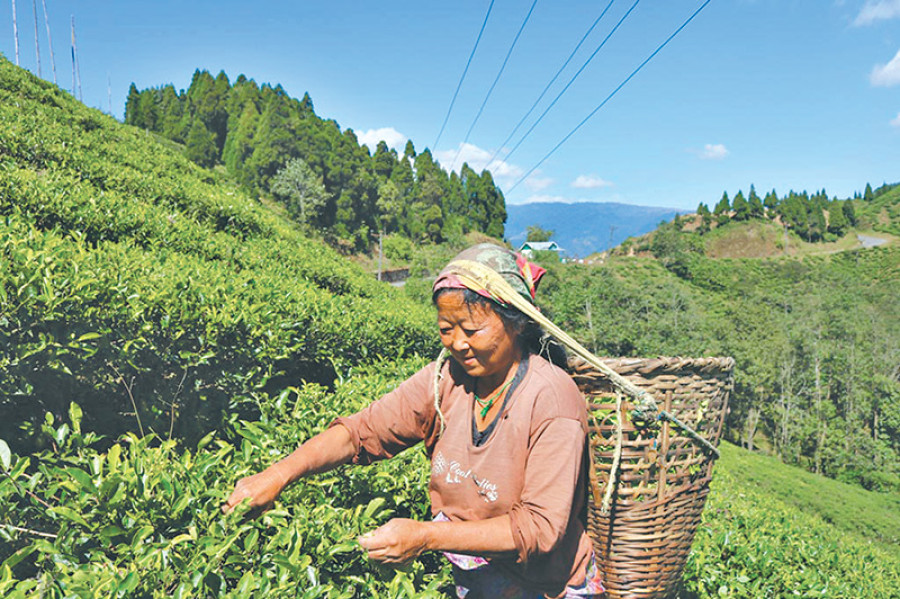Money
Small tea factories rue organic certification
Many factories run by small tea growers in the eastern hill districts are making the shift to organic farming as demand continues to grow in the global market but they bemoan the difficulty in getting the organic certification for the product.
Biplav Bhattarai
Many factories run by small tea growers in the eastern hill districts are making the shift to organic farming as demand continues to grow in the global market but they bemoan the difficulty in getting the organic certification for the product.
“It’s too expensive and full of hassle just to obtain the organic certification,” said tea growers.
While factories run by small tea growers are struggling to get their product certified due to cost factor, big factories who collect green tea leaves from small farmers are having difficulties ascertaining whether the produce they receive are organic.
“The problem of getting the organic certification comes at a time when tea growers are having difficulty getting market access,” said Sujan Nepal, a local of Suryadaya Municipality in Fikkal. “The government should support farmers to sort out such issues,” he said.
A Danish government funded UNNATI Programme had supported farmers to get their tea certified. While some factories got the certification, they will not be able to renew it in the future as they are required to renew it annually.
The farmers who did not receive the project’s support will have to overcome more hurdles as they have to start from scratch, said Gayetri Basnet, a tea entrepreneur at Sankhejung. “Those who have been certified are struggling to renew.”
To obtain the international organic certification, a factory run by small farmers needs to spend Rs900,000 annually.
Tea factories in Ilam are getting organic certificates from many international organisations. Although it’s cheaper to get the product’s organic certificate domestically, tea factories said that the international market prefer certification from reputed global brands, said Basnet. “That’s why many tea factories prefer certification from international organisations.”
There are around 150 tea factories in Ilam. Some factories have obtained organic certification by their own efforts while some were supported by the UNNATI programme. Many remaining factories have not been able to get the certification. Among the 57 tea factories supported by UNNATI, 90 percent of them have already received organic certification.
Organic fertiliser is the key component to produce organic tea. Although the government has been providing a subsidy on organic fertiliser for tea growers, most of the farmers said that they have not received any government offer.
The eastern hilly districts produce nearly 5,500 tonnes of readymade orthodox tea. Of them, 10 percent is consumed in the domestic market while 10 percent is exported to the third countries. Tea entrepreneurs said that 80 percent of Nepal’s tea is exported to India.
Nepali tea export to third countries dropped sharply after the German Tea Council and European Tea Committee prepared a new standard for food items in 2005.




 9.6°C Kathmandu
9.6°C Kathmandu















